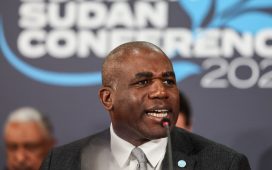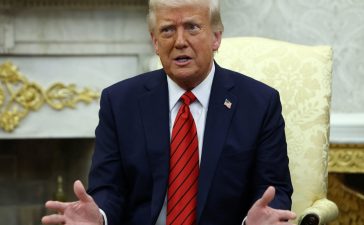What is the Rwanda plan?
Under the plan, anyone who arrives in Britain illegally will be deported to Rwanda, a country in eastern Africa.
The government believes the threat of being removed to Rwanda will deter migrants from making the dangerous Channel crossing in small boats.
Once in Rwanda, their asylum claims will be processed but there is no route back to the UK, save for some exceptional circumstances such as individual safety concerns. Britain will pay for migrants to start a new life in Rwanda.
What’s the hold up?
First announced by Boris Johnson in 2022, the scheme has been bogged down by relentless legal challenges.
The first flight was due to take off in summer 2022, but was blocked on the runway at the last minute by a European Court order.
Since then the legality of the plan has been contested in the courts, culminating in a Supreme Court judgement in November last year which said Rwanda was unsafe for asylum seekers.
What is Sunak doing?
To salvage the Rwanda plan from the Supreme Court’s scathing ruling, Rishi Sunak announced a two-pronged workaround.
First, he would sign a new treaty with Rwanda to beef up protections for asylum seekers that will be enshrined in law.
Second, he would introduce new legislation that would declare Rwanda a safe country.
It would mean courts, police and officials would have to treat it as safe unless there is a risk of individual and irreparable harm.
How long will that take?
The legislation has cleared the Commons but is now being held up in the House of Lords.
Rishi Sunak does not have a majority in the Lords, and peers are far more hostile to the plan.
They will likely send it back to the Commons with amendments watering down the scheme.
Such changes would be unconscionable to MPs who would strip out the measures and send it back.
This “ping-pong” will continue until either side – usually the unelected Lords – gives in and the Bill passes.
When will flights take off?
Mr Sunak wants to get the first flights sent to Rwanda by the spring.
But potential hurdles include more court battles launched by individual migrants or the European Court of Human Rights.
Mr Sunak has vowed to ignore any more orders by Strasbourg judges to ground planes, although individual appeals in domestic courts could prove tricky.
Sir Keir Starmer has said he will scrap the scheme if he is elected PM, even if it is working











